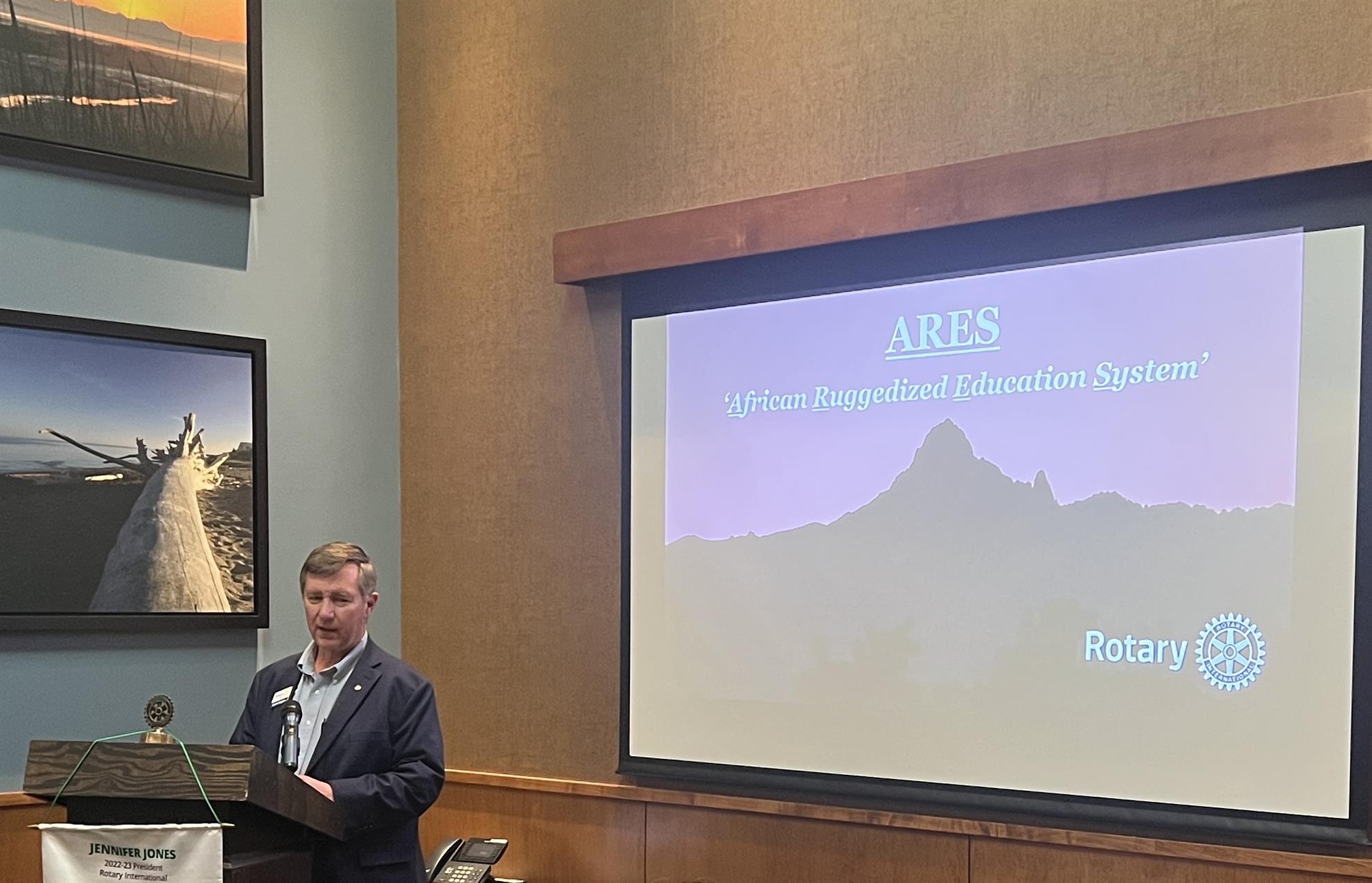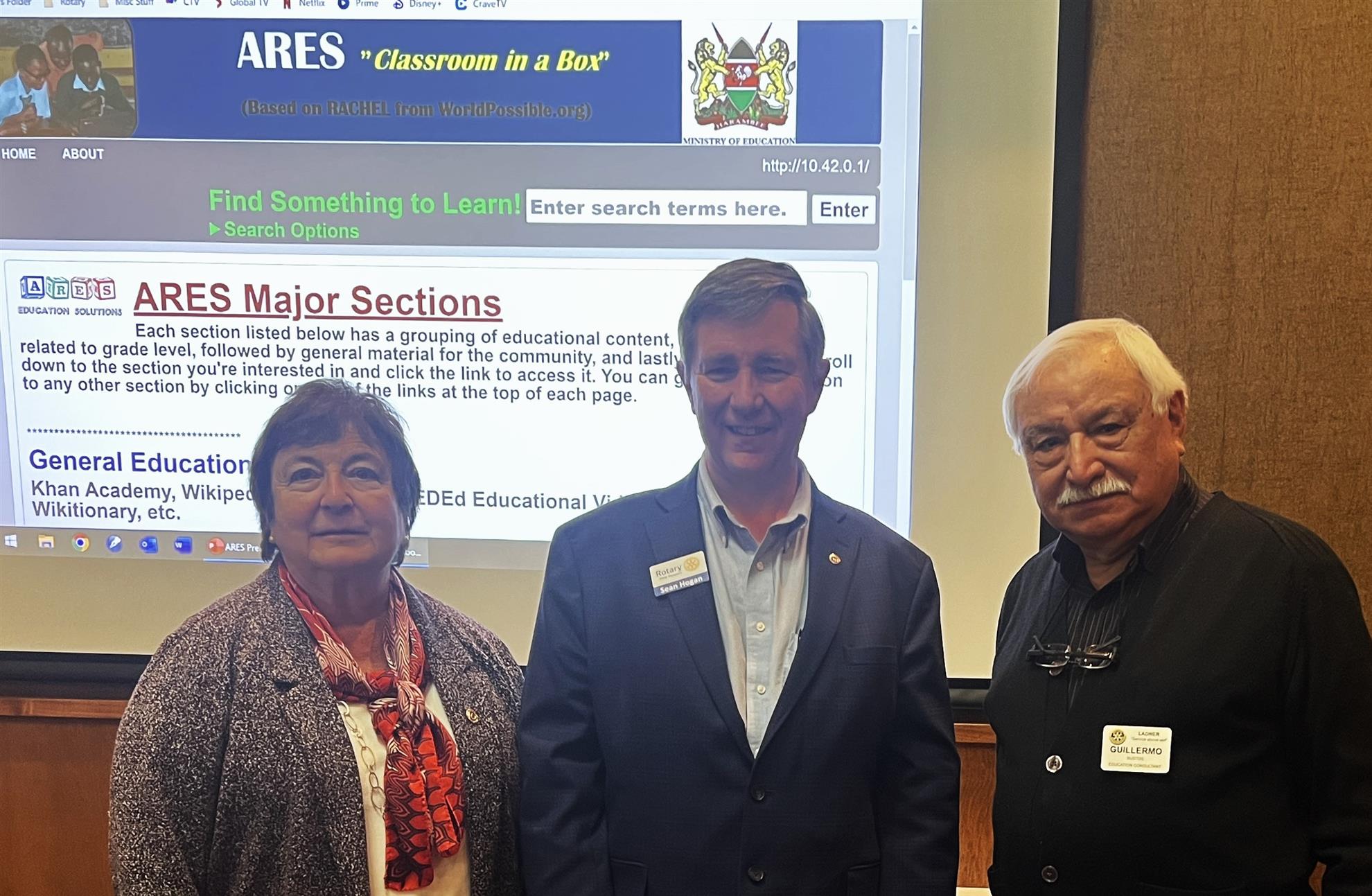
North Delta Rotarian and now retired school teacher, Bonnie Sutherland, on starting the first of many visits to Africa with her late husband, Don, 30 years ago, saw the great need for teachers and students in remote areas of Kenya. They recognized that remote, rural schools often had limited access to books, paper and writing materials, and suffered from intermittent power and no internet access. After earlier efforts to provide not only education materials, but failed attempts to supply equipment for digital learning, a Rotary team developed the African Ruggedized Education System (ARES), a "classroom in a box".
ARES is the brainchild of Bellingham Rotarian Mark Knittel, who had served as a leader in IBM for 30 years. Learning about the problems with intermittent power, power surges, dust, heat and theft, Mark, with his extensive background in technology, was determined to find a better way to provide a computer enhanced education model. Mark created a small server that would be rugged to deal with heat, dust and power issues. The case is designed to prevent dust intake, while the components minimize heat issues. The ARES server can be charged overnight and will run on a battery - so that if the school loses power, the system still operates.
 |
Working with other charitable groups which create digital educational resources, ARES has educational resources from pre-school to post-grad. ARES also has agricultural guides and medical reference material to serve as a resource for the entire community.
Students access ARES through basic, inexpensive laptops, such as Chromebooks, as well as through existing school computer labs, tablets, smartphones and any other wireless device. Up to 50 wireless devices can connect to the ARES server at a time, with each user able to access different resources on the server.
The power cords stay with the teacher or librarian, and every school is required to build a locked storage room to minimize the risk of theft. Since the data is stored on the server only, it also minimizes any damage that viruses might do.
To the users, it may appear that they are accessing the internet - but they aren't. Everything is on the server and the data is both safe and appropriate for students.
But technology is only part of the solution. The ARES Project also provides training for teachers on how to use and to teach using the ARES materials. Many teachers have only been able to teach through rote memorization and repetition because of the lack of available resources. ARES is a revolution in education for rural communities anywhere in the world. It has been delivered more recently in some villages of The Philippines.
 | |
| Bonnie Sutherland and Sean Hogan are thanked by President Guillermo Bustos | |